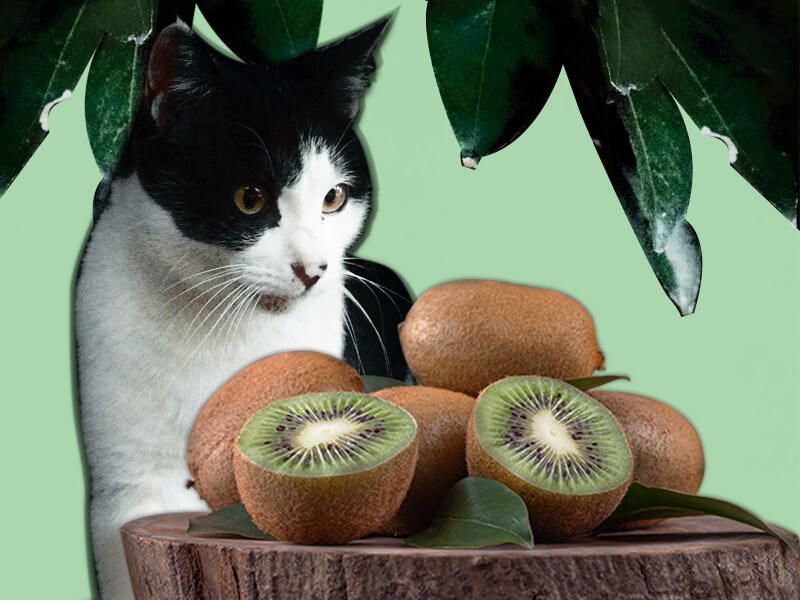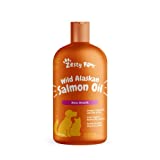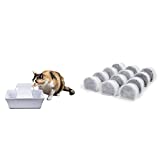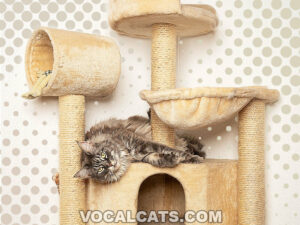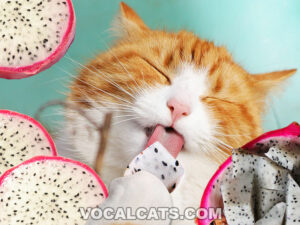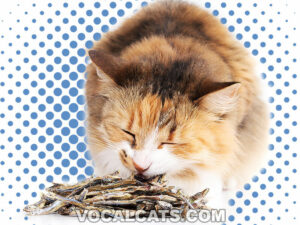Can Cats Eat Kiwi? Yes, cats can eat Kiwi, but not always. A little bit of Kiwi won’t harm them but too many may cause digestive issues. Kiwi is not toxic, including its seeds. It is a good source of vitamins, minerals, and fiber. Kiwi is also low in calories and sugar, making it safe for obligate carnivores like cats to eat in moderation.
Kiwi is undoubtedly great for our health because it helps strengthen our immune system but the question is can my cat eat Kiwi as well? Our cats can also benefit from Kiwi but too much of this fruit may have some negative effects like diarrhea.
While a purely plant-based diet is not good for cats, occasional treats of tasty fruits like Kiwi and dragon fruit won’t harm them. Our cats can reap the health benefits of fruits like improved digestion and protection against free radicals. So, how many Kiwi is safe for our cats? Why is it okay for them and what are the precautions to consider? Stay with me as I discuss with you why your cat can eat Kiwi occasionally.
Contents
- Can Cats Have Kiwi?
- What is a Kiwi?
- Is Kiwi Toxic For Cats?
- So, Is Kiwi Bad For Cats?
- Is Kiwi Safe For Cats?
- Is Kiwi Good For Cats?
- Is Kiwi Okay For Cats?
- Can Cats Be Allergic To Kiwi?
- Can Kittens Eat Kiwi?
- Kiwi And Cats
- Can Cats Eat Kiwi Fruit?
- Can Cats Eat Kiwi Skin?
- Can Cats Eat Golden Kiwi?
- Can Cats Eat Kiwi Seeds?
- Can Cats Eat Kiwi Juice?
- What Human Food Can Cats Eat?
- Alternatives To Kiwi For Cats
- What fruits can cats not eat?
- My Cat Ate Kiwi! What To Do If My Cat Ate Kiwi?
- So, Can Cats Eat Kiwi?
- Related Questions
Can Cats Have Kiwi?
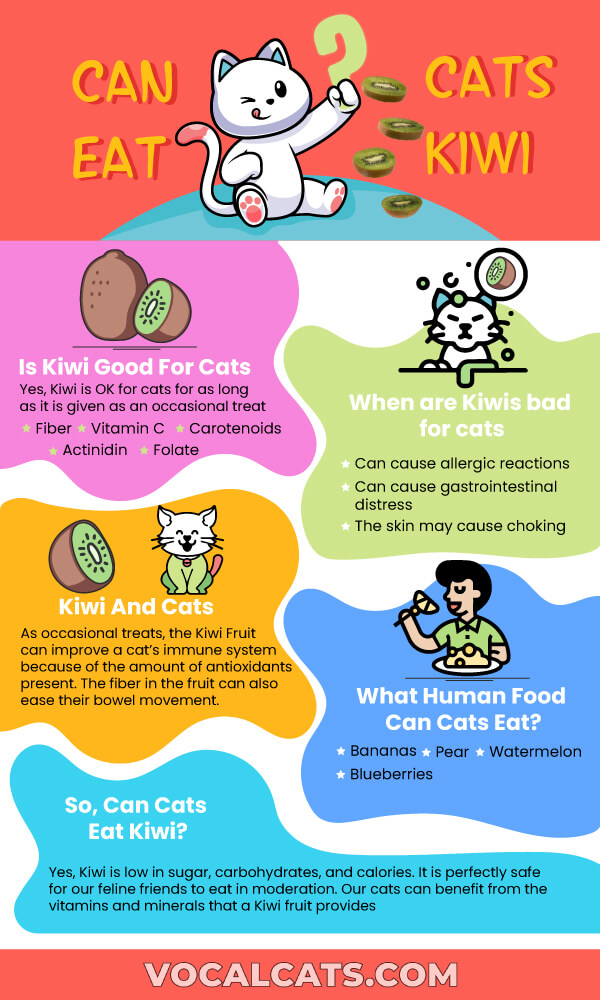
Yes, cats can have Kiwi but only in moderation. A Kiwi fruit is low in calories and sugar, and it’s packed with many healthy nutrients.
So, can cats eat Kiwis? Yes, because based on the nutritional profile of 1 slice of Kiwi which weighs 7 grams, you can see that it does not exceed the daily nutritional requirements of cats.
For the calories alone, 7 grams of Kiwi only provide 4 calories which is safe because cats can consume 25 calories from treats. Kiwi is also low in carbohydrates because of its low sugar content.
Kiwi is also low in sodium and cholesterol, making it a safe treat for cats. However, I want to emphasize that no matter how healthy fruits are, cats are still better off eating animal meat as their main diet.
Fruits like Kiwi can be enjoyed by our feline friends on special occasions only. Overconsumption of fruits may lead to gastrointestinal distress including diarrhea.
The table below shows the health benefits of a slice of Kiwi:
Nutritional Profile of Kiwi (1 slice or 7g)
| Name, Unit | Amount |
| Calories, cal | 4 |
| Sodium, mg | 0.35 |
| Carbohydrate,g | 1.05 |
| Total Fat, g | 0.031 |
| Cholesterol, mg | 0 |
| Protein, g | 0.074 |
| Iron, mg | 0.017 |
| Calcium, mg | 2.45 |
| Magnesium, mg | 1.12 |
| Phosphorus, mg | 2.38 |
| Potassium, mg | 13.9 |
| Vitamin C, mg | 5.23 |
| Vitamin B6, mg | 0.004 |
| Riboflavin, mg | 0.002 |
| Sugar, g | 0.629 |
| Zinc, mg | 0.01 |
| Fiber, g | 0.21 |
What is a Kiwi?
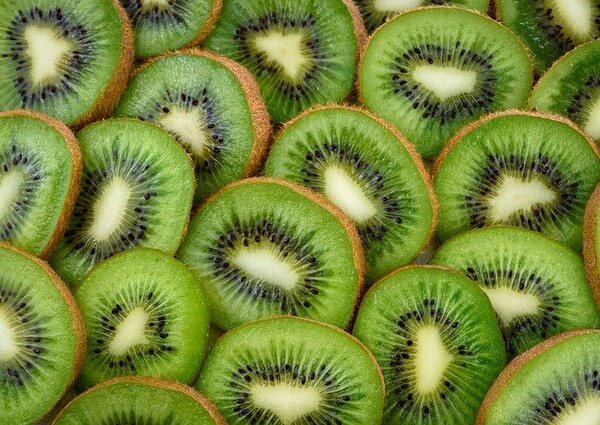
Before we discuss “Can cat eat Kiwi?,” let us first discuss what is a Kiwi and where this fruit originates from.
Kiwi, which is also called kiwifruit or Chinese gooseberry, is a small oval-shaped fruit with a furry, brownish outer skin and green or yellow translucent flesh. It is classified as a berry fruit with tiny, edible purple-black seeds that radiate from a white center.
The sour, tarty fruit is native to China and is known locally as yang tao or mihoutao. It was introduced in New Zealand in the early 20th century where the fruit was first successfully developed to be cultivated for the export market.
The term “Kiwifruit” or “Kiwi” was adopted in 1959 by a fruit company from New Zealand as a marketing strategy. It was named after the flightless bird endemic to the island country, called kiwi, which also has a brown and fuzzy appearance.
Is Kiwi Toxic For Cats?
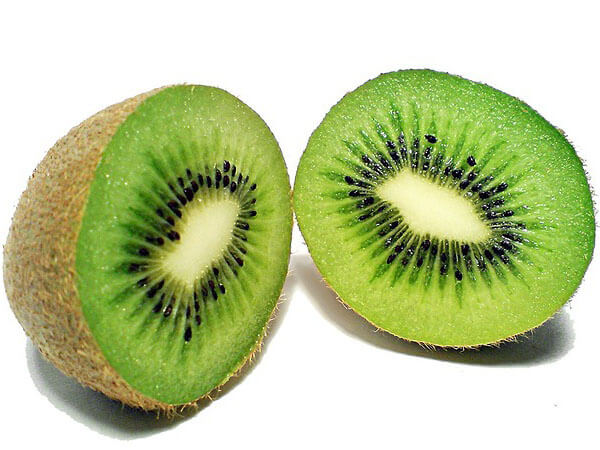
No, Kiwi is not toxic to cats. Unlike chocolates, garlic, or dairy products that have harmful molecules that can disrupt the health of your cat, Kiwi has no known components that can be considered toxic to cats.
In small quantities, giving Kiwi cat has some benefits. Kiwis are mainly made up of simple carbohydrates, fiber, and sugar. It is also rich in antioxidants such as vitamin C and beta carotene that can support the immune system.
Kiwis also contain folic acid for neural development and cellular division, as well as lutein for good eyesight.
So, Is Kiwi Bad For Cats?
Since our cats can eat a moderate amount of Kiwi without resulting in any adverse effects, you may be asking now, ‘When are Kiwis bad for cats?” Here are 4 reasons why you should only give Kiwi in moderation:
1. Can cause allergic reactions
Kiwi contains actinidin, an enzyme that can cause allergic reactions in some humans and some cats. While actinidin plays a role in the digestive process, some cats may react to this enzyme causing abdominal pain.
2. Can cause gastrointestinal distress
Too much Kiwi can affect the digestive system of our feline friends. As we said earlier, cats are obligate carnivores, their digestive system is designed to take in and absorb animal meat only.
So, if they eat too many plant-based foods like Kiwi, some of them can suffer from indigestion, diarrhea, constipation, or vomiting.
3. The skin may cause choking
Kiwi skin may be too tough for your cat to chew, so be sure to peel it off to avoid choking.
Plus, the skin of the Kiwi is too fibrous, so in case your kitty had too much of it, you can expect her to suffer from diarrhea.
4. Can cause poisoning
The fruit itself is not toxic but Kiwi vines are sprayed with chemicals like insecticides and fertilizers. So, wash it well before giving a slice to your cat to remove toxins.
Is Kiwi Safe For Cats?
Are Kiwis safe for cats to consume regularly? Kiwi is safe for cats only in moderate amounts and should not be a big part of their diet.
Cats are obligate carnivores which means they get most of their nutrients from a meat-based diet. They cannot properly digest fruits and vegetables in large amounts since their digestive system doesn’t have enough enzymes to break down these carbohydrates.
Additionally, giving your cat Kiwis, or some other fruit with no known toxicity to them, can increase their daily caloric consumption and cause unwanted weight gain.
Fruits, in general, should only comprise about 2% of your cat’s diet and should only be given as alternative or occasional treats.
Acidic fruits, such as Kiwi, should be introduced to your cat gradually and in small amounts. This is to ensure that they will not develop stomach upsets or allergic reactions to the fruit.
Cats, by and large, are not interested in sour foods and do not have taste receptors for sweetness for them to enjoy a slice of Kiwi. They may enjoy the fruit rather for its texture or quite possibly for its aroma since Kiwi vines are said to have a similar smell as catnip.
Is Kiwi Good For Cats?
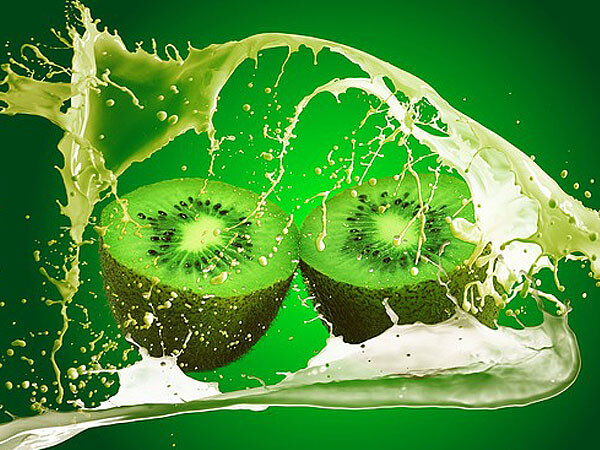
Kiwis are packed with many essential nutrients making them one of the healthiest fruits available. But, are Kiwis good for cats as well?
Listed below are just some of the benefits that your cat may get from this fruit:
1. Fiber
Kiwi is rich in dietary soluble fiber that can aid in proper digestion. Soluble fiber turns into a gel in the digestive tract that can bulk up the stool and make it easier to pass.
2. Actinidin
The Kiwi fruit contains the enzyme actinidin which can help in the breakdown of proteins. This enzyme might further improve the digestion of proteins that a cat uses for its energy.
3. Vitamin C
While cats naturally produce vitamin C in their liver, a small amount of this vitamin from Kiwi can boost their immune system and prevent oxidative stress due to free radicals.
4. High Water Content
The high water content of Kiwi can keep your cat well-hydrated. Cats do not regularly drink water and the moisture content from a regular kibble diet may not be enough to keep them fully hydrated.
5. Folate
Kiwi is a good source of vitamin B9 or folate which is essential for cellular division, protein synthesis, and proper brain development. Cats that do not get enough folic acid in their diet may suffer anemia.
6. Carotenoids
The carotenoids present in Kiwi that can benefit your cat are beta-carotene, lutein, and zeaxanthin. Reinforcing their diet with additional carotenoids can help improve not only their eyesight but also their immune system.
7. Potassium
Kiwis have more potassium content compared to bananas. Potassium is an important electrolyte that regulates heart function, and nerve impulses, and controls muscular contraction.
8 . Vitamin E
This fat-soluble nutrient is essential in proper immune system functioning, as well as, developing strong muscles and heart.
It also acts as an antioxidant that destroys free radicals that can cause cellular damage.
Is Kiwi Okay For Cats?
Yes, Kiwi is OK for cats for as long as it is given as an occasional treat. It’s a nice fruit that contains a good level of water to keep our feline friends hydrated, especially during summer months.
By the way, before I continue, may I ask what food bowl are you currently using for your cat? While ordinary food bowls are okay, I’ve tried a cat feeder that makes mealtime much easier. This is the PETLIBRO Automatic Cat Feeder with Camera for Two Cats.
I am amazed with this product because it comes with a patented unique food dispensing technique that allows me to adjust the amount of food that my cat needs.
To keep cat food fresh all the time, it has a food desiccant bag that I only need to change every fifteen (15) days. What’s more? It has a high-definition video so I can monitor if my feline friend is eating.
Try this product because I can guarantee you that it’s worth it.
Can Cats Be Allergic To Kiwi?
Some cats can have an allergic reaction to Kiwi. Certain compounds found in Kiwi, like actinidin and kiwellin, can trigger an upset stomach, diarrhea, or vomiting.
It is always recommended to feed your cat small amounts of Kiwi first and see if there is any negative reaction to their system.
Can Kittens Eat Kiwi?
Kittens that are at least 4 weeks old can be introduced to solid foods, including some fruits like Kiwi. However, the main part of your kitten’s diet should consist of meat-based food that can help in the development of their bones and muscles.
Cats, in general, get their nutrients and energy source from animal protein. Plant-based foods should only be given in moderation since they cannot properly digest these due to the lack of some enzymes in their digestive tract.
Kiwi And Cats
Kiwi is one of those fruits that is not too sweet for our pets, hence, if you’re worried that
cats and Kiwi Fruit may not be a good idea, well, it’s safe for cats to have it in moderation.
Can Cats Eat Kiwi Fruit?
The answer to the question, Can cat eat Kiwi fruit?, is yes as long as it is given in moderate amounts. While the fruit contains beneficial vitamins and minerals, Kiwi is composed of carbohydrates and sugars that are not essential to your cat’s diet.
As occasional treats, the Kiwi Fruit can improve a cat’s immune system because of the amount of antioxidants present. The fiber in the fruit can also ease their bowel movement.
Can Cats Eat Kiwi Skin?
No, cats cannot eat Kiwi skin because it is a potential choking hazard. The rind or the outermost layer of Kiwi has a fibrous texture that may be hard for a cat to swallow. It also has a fuzzy, hairy texture that can irritate their mouth and throat.
While the skin has copious amounts of vitamin E, which is a powerful antioxidant that protects cells from damage, the hazard it can cause outweighs its benefits.
Can Cats Eat Golden Kiwi?
Yes, cats can eat the flesh of Golden Kiwis. It is similarly loaded with vitamins and antioxidants but boasts of having twice the amount of vitamin C than the regular green ones.
It is also less fibrous making it easier for a cat to bite into. However, Golden Kiwis have more fructose content than green Kiwis, and feeding them this fruit regularly can spike their sugar intake.
Can Cats Eat Kiwi Seeds?
Yes, cats can eat Kiwi Seeds which pose no health hazard to our feline friends, unlike stone seeds from an apple or pear which contain trace amounts of cyanide.
The tiny, black seeds of a Kiwi fruit contain a good amount of vitamins C, E, K, and folic acid that can aid the overall health of your cat.
Can Cats Eat Kiwi Juice?
Yes, cats can safely eat Kiwi Juice. Kiwi Juice is just mashed Kiwis mixed with water so it would offer the same benefits as feeding your cat a slice of the fruit. Aside from boosting their immune system, the water content of Kiwi Juice can keep your cat well hydrated, especially during the warm months.
Of course, Kiwi Juice still adds sugar and carbohydrates to your cat’s diet so moderation is still key.
What Human Food Can Cats Eat?
Aside from Kiwi, there are other fruits that our cats can eat in moderation and these are the following:
- Bananas
- Pear
- Watermelon
- Berries like blueberries, strawberries, cranberries, and raspberries
You can also give your feline friend cooked meats that do not have any seasonings like salt and pepper. These meats are:
- Deboned fish
- Chicken
- Beef
- Lamb
Aside from safe human food that can be eaten in moderation, you can also incorporate supplements such as the Zesty Paws Pure Wild Alaskan Salmon Oil.
Pure Wild Alaskan Oil is a premium source of Omega-3 fatty acids which has many benefits including preventing blood clots, aiding in slowing down the worsening of kidney diseases, and helping improve and maintain skin and coat conditions.
Alternatives To Kiwi For Cats
But, if you ask me, I would instead stick to commercially prepared cat food. Trusted brands of cat food have been tested to contain a balance of nutrients that our cats require.
I think this is the best way to ensure that our cats are only eating what is right for them, avoiding the problems of obesity, and lack of taurine, among others.
You have a choice between dry/kibble or wet/canned cat food. The advantage of canned food is that it contains a higher level of water to keep your cat hydrated.
Speaking of hydration, do you find it tiring to constantly replenish the water bowl of your cat? The best solution I discovered is the pet water fountain. The product below is what I have been using and my cat and I are happy with it. Check out the Petsafe Drinkwell Pagoda Pet Water Fountain:
It comes with dual streams of clean and fresh water that keep my cat hydrated all day. It also has a foam filter to prevent cat fur and other debris from contaminating water. On top of those, this water fountain holds 70 ounces of water which is perfect for all cats, from small to large-sized breeds.
What fruits can cats not eat?
Grapes and their dried version of raisins are considered very toxic to cats. Although it is yet unclear how toxic these are, it’s possible that the grape tannins are to blame for kidney injury.
Cherries and plums are likewise not advised due to the minuscule levels of cyanide found in their seeds. Citrus fruits like oranges, limes, and lemons are harmful to cats as well because the citric acid in them can upset their stomachs and aggravate their nervous systems.
My Cat Ate Kiwi! What To Do If My Cat Ate Kiwi?
In case your cat stole and ate the whole Kiwi fruit, the best thing to do is to observe him for two (2) to three (3) days. Gastrointestinal disorders like diarrhea are the possible side effects of eating a lot of Kiwi fruit.
If those symptoms show up, take him to the vet where his vital signs will be measured. Medicines will be administered to control diarrhea and vomiting.
If the symptoms are more serious, your cat may have to be confined for further evaluation and to replace lost fluids via intravenous injections.
So, Can Cats Eat Kiwi?
Yes, Kiwi is low in sugar, carbohydrates, and calories. It is perfectly safe for our feline friends to eat in moderation. Our cats can benefit from the vitamins and minerals that a Kiwi fruit provides.
Related Questions
Yes, Kiwi vines produce an aroma that works like catnip for cats. Actinidin, which is the compound found in Kiwi vines, has a sweet, pungent scent that triggers receptors in your cat’s brain causing them to feel happy and mellow.
Not all fruits are safe for our feline friends. Some of these are grapes, cherries, lemons, oranges, and limes.
DISCLAIMER: THIS WEBSITE DOES NOT PROVIDE MEDICAL ADVICE
The information, including but not limited to, text, graphics, images and other material contained on this website are for informational purposes only. No material on this site is intended to be a substitute for professional veterinary advice, diagnosis, or treatment. Always seek the advice of your veterinarian or other qualified health care provider with any questions you may have regarding dietary needs.
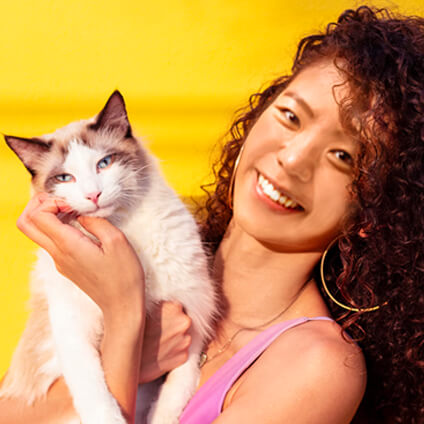
With over five years of specialized experience as an animal writer, my expertise lies in cat nutrition, health, behavior, grooming, and training. I am dedicated to delivering helpful and informative content that caters to the well-being of our feline friends. My primary goal is to empower pet owners with knowledge and ensure our feline companions thrive in health and happiness. In my free time, I love volunteering at local cat rescue centers.
